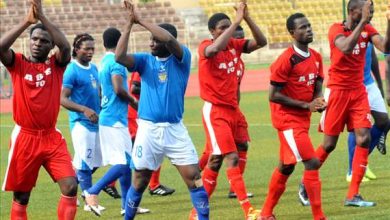Corruption: NFF’s Ethics C’ttee bans Yusuf, fines him $5,000

The Nigerian Football Federation ethics committee has banned Super Eagles assistant coach Salisu Yusuf for one year from all football activities after finding him culpable following a video footage broadcast which showed him accepting money, in return for favour, from undercover reporters posing as football agent.
Yusuf was also fined $5,000 which must be paid to the Federation within three months. He will not participate in football-related activities for one year, and will miss the Super Eagles’ 2019 Africa Cup of Nations tournament if the team qualifies.
The footage captured by controversial Ghanian journalist Anas Aremeyaw Anas in September 2017 had Yusuf recieve $1000, (N360,000) to pick two players for the 2018 CHAN championship. He was further promised 15% by the men posing as football agents of the players as soon as they are able to seal a deal abroad.
The 56-year-old former Kano Pillars coach has since denied any wrongdoing, insisting that he did not promise or commit to selecting any player in exchange for the money.
In its report submitted to the NFF Secretariat on Tuesday, day after they invited the coach to state his own side of the matter, the Committee headed by Mallam Nuhu Ribadu states as follows:
“Established from the admission of coach Salisu Yusuf and also found as a fact from the documentary and video evidence before it, that he accepted the cash gift of $1,000 offered by Tigers Player’s Agency, an undercover reporter, purportedly interested in acting on behalf of players Osas Okoro and Rabiu Ali, for their inclusion in the list of players for 2018 CHAN Competition in Morocco.
“The Committee found as a fact that it was not an error of judgment on the part of Coach SalisuYusuf, but a conscious and deliberate decision to have accepted the cash gift of $1,000 from the decoy player agent/undercover reporter, purportedly interested in acting on behalf of Players Osas Okoro and Rabiu Ali, even though the evidence before the Committee did not establish that his conduct influenced the choice of the two players.





